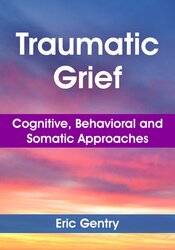Melden Sie sich noch heute für einen Online-Kurs an, um flexibel und im eigenen Tempo zu lernen - ein fester Zeitplan ist nicht erforderlich.


-
 Online-KursUnabhängig davon, ob Sie sich zum ersten Mal mit der Internal Family Systems IFS)-Therapie befassen oder dieses Modell bereits seit Jahren anwenden, registrieren Sie sich und entdecken Sie, wie Sie das Modell verfeinern und anpassen können, um es auf die individuellen Bedürfnisse Ihrer Klienten abzustimmen.Wert: €1.140,66 *(275,99 €)€137,99Unabhängig davon, ob Sie sich zum ersten Mal mit der Internal Family Systems IFS)-Therapie befassen oder dieses Modell bereits seit Jahren anwenden, registrieren Sie sich und entdecken Sie, wie Sie das Modell verfeinern und anpassen können, um es auf die individuellen Bedürfnisse Ihrer Klienten abzustimmen.21 Okt, 2020Unabhängig davon, ob Sie sich zum ersten Mal mit der Internal Family Systems IFS)-Therapie befassen oder dieses Modell bereits seit Jahren anwenden, registrieren Sie sich und entdecken Sie, wie Sie das Modell verfeinern und anpassen können, um es auf die individuellen Bedürfnisse Ihrer Klienten abzustimmen.Wert: €1.140,66 *(275,99 €)€137,99
Online-KursUnabhängig davon, ob Sie sich zum ersten Mal mit der Internal Family Systems IFS)-Therapie befassen oder dieses Modell bereits seit Jahren anwenden, registrieren Sie sich und entdecken Sie, wie Sie das Modell verfeinern und anpassen können, um es auf die individuellen Bedürfnisse Ihrer Klienten abzustimmen.Wert: €1.140,66 *(275,99 €)€137,99Unabhängig davon, ob Sie sich zum ersten Mal mit der Internal Family Systems IFS)-Therapie befassen oder dieses Modell bereits seit Jahren anwenden, registrieren Sie sich und entdecken Sie, wie Sie das Modell verfeinern und anpassen können, um es auf die individuellen Bedürfnisse Ihrer Klienten abzustimmen.21 Okt, 2020Unabhängig davon, ob Sie sich zum ersten Mal mit der Internal Family Systems IFS)-Therapie befassen oder dieses Modell bereits seit Jahren anwenden, registrieren Sie sich und entdecken Sie, wie Sie das Modell verfeinern und anpassen können, um es auf die individuellen Bedürfnisse Ihrer Klienten abzustimmen.Wert: €1.140,66 *(275,99 €)€137,99 -
 Online-KursGabor Maté geht über die Anleitung hinaus und demonstriert genau, wie er Compassionate Inquiry einsetzt, um Heilung zu ermöglichen. Erleben Sie, wie er seine einzigartige Methode mit über 10 Zuhörern anwendet.Wert: €689,89 *(275,99 €)€137,99Gabor Maté geht über die Anleitung hinaus und demonstriert genau, wie er Compassionate Inquiry einsetzt, um Heilung zu ermöglichen. Erleben Sie, wie er seine einzigartige Methode mit über 10 Zuhörern anwendet.15 Jul, 2022Gabor Maté geht über die Anleitung hinaus und demonstriert genau, wie er Compassionate Inquiry einsetzt, um Heilung zu ermöglichen. Erleben Sie, wie er seine einzigartige Methode mit über 10 Zuhörern anwendet.Wert: €689,89 *(275,99 €)€137,99
Online-KursGabor Maté geht über die Anleitung hinaus und demonstriert genau, wie er Compassionate Inquiry einsetzt, um Heilung zu ermöglichen. Erleben Sie, wie er seine einzigartige Methode mit über 10 Zuhörern anwendet.Wert: €689,89 *(275,99 €)€137,99Gabor Maté geht über die Anleitung hinaus und demonstriert genau, wie er Compassionate Inquiry einsetzt, um Heilung zu ermöglichen. Erleben Sie, wie er seine einzigartige Methode mit über 10 Zuhörern anwendet.15 Jul, 2022Gabor Maté geht über die Anleitung hinaus und demonstriert genau, wie er Compassionate Inquiry einsetzt, um Heilung zu ermöglichen. Erleben Sie, wie er seine einzigartige Methode mit über 10 Zuhörern anwendet.Wert: €689,89 *(275,99 €)€137,99 -
Werden Sie ein Partner
Aktuelle Themen:











